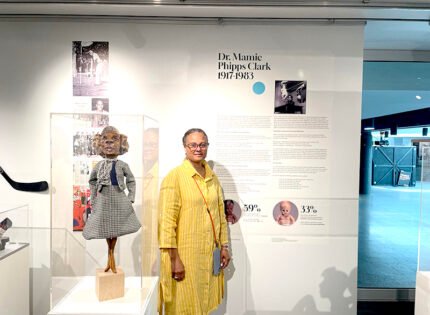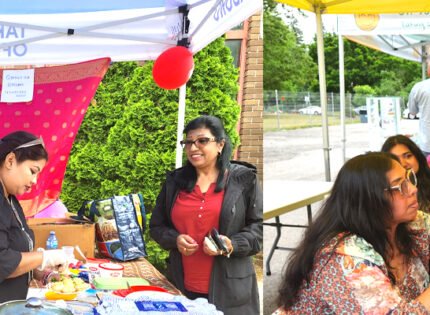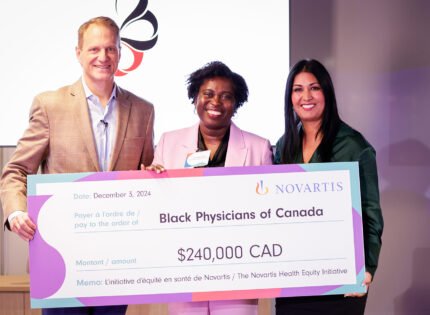Rosie Awori (LJI)
The coronavirus has claimed about 1.5 million lives and the toll keeps rising daily. In desperation over the past nine months, scientists have been scrambling to formulate a vaccine. Vaccine development is a long, complex process, often lasting 10-15 years and involving a combination of public and private contributions. But such is the desperation of the times that in less than a year, several pharmaceuticals and vaccines developers have been able to come up with vaccines they believe will help curb the spread of the pandemic.
Canadian Health officials stated that the country could be in a position to approve Pfizer’s COVID-19 vaccine within 10 days. Also Health Canada is currently reviewing other vaccines, from Moderna, AstraZeneca, and Jannsen and the federal and provincial governments are working on the logistics of rolling out vaccines once approval is granted.
Across the border, the unprecedented surge of covid-19 hospitalizations across the United States has been putting hospitals and medical staff under enormous strain. The country recently hit alarming infection rates surpassing 200,000 new infections and topping 100,000 covid-19 patients hospitalized. Experts are bracing for another wave of new cases and hospitalizations connected to the recent Thanksgiving travel.
Still many are suspicious about taking the vaccine.
So former Presidents Barack Obama, George W. Bush, and Bill Clinton have shown great confidence in the vaccine and have each said they are willing to take the coronavirus vaccine to prove the treatment is safe and effective.
Meanwhile, Britain approved the COVID-19 vaccine from pharmaceutical company Pfizer and the German company BioNTech, this moves makes it the first Western country to authorize mass inoculations that could lead to an end of the pandemic. Unlike their American counterparts, the British population is eager to receive the vaccines — especially after numbers showing that they had the highest death toll in Europe.
Prime Minister, Boris Johnson, has been keen to be first in the West to roll out a vaccine. Government officials said a mass immunization program would start almost immediately, with the distribution of the first 800,000 doses to begin the week of December 8th.
The Medicines and Healthcare Products Regulatory Agency, which licenses drugs in the U.K., recommended the vaccine could be used after it reviewed the results of clinical trials that showed the vaccine was 95 percent effective overall — and that it also offered significant protection for older people, among those most at risk of dying from the disease.
In Africa, it is feared that many countries may not have the vaccine until 2022 or early 2023. It comes as no surprise as Africa has continually gotten the short end of the stick at the global table. The director of the Africa Centers for Disease Control and Prevention, John Nkengasong, is quoted as saying that if it takes four to five years, “the virus will be endemic in our communities.”
Concerns are growing that the continent of 1.3 billion people will be near the end of the line in obtaining doses.
The World Health Organization (WHO) together with, the Coalition for Epidemic Preparedness Innovations (CEPI) and Gavi, the Vaccine Alliance launched an initiative called the COVID-19 Vaccine Global Access (COVAX) to speed up the development of COVID 19 vaccines and make sure they are distributed equitably among higher- and lower-income countries.
Over 167 countries have signed up, covering nearly two-thirds of the global population. Under this scheme, lesser financially able nations should have enough vaccines to protect health-care workers and the most vulnerable 20% of their populations.
Nkengasong also vowed that “no sub-standard vaccines will be in use in Africa.” The continent can’t afford to do country-by-country regulatory approval, he said, estimating it would take five years or more. Instead, the Africa CDC is offering a platform where national regulatory bodies can agree on a mechanism to approve any vaccines that come to the continent, he said.
“We are stronger when we are together,” he added, as a handful of African countries have started looking into obtaining vaccine doses for their own citizens outside the global initiative aiming at equitable vaccine distribution known as COVAX. “If we go in a dispersed way as a continent, then our overall strategy will suffer.”
The African continent now has close to 2.2 million confirmed virus cases, or about 3.5% of the global total, as health officials warn of signs of a second surge in some countries.
In the Caribbean, through funding from the European Union (EU), the Pan American Health Organization (WHO/PAHO), in partnership with the Caribbean Public Health Agency (CARPHA), have secured down payments to purchase over 1 million doses of the expected COVID-19 vaccine(s) for the Caribbean Member States. WHO/PAHO will receive the funds from CARPHA for transfer to Gavi (the Vaccine Alliance) for the required down payments. When the vaccines are available, member states across the region will purchase them through the WHO/PAHO Revolving Fund.















